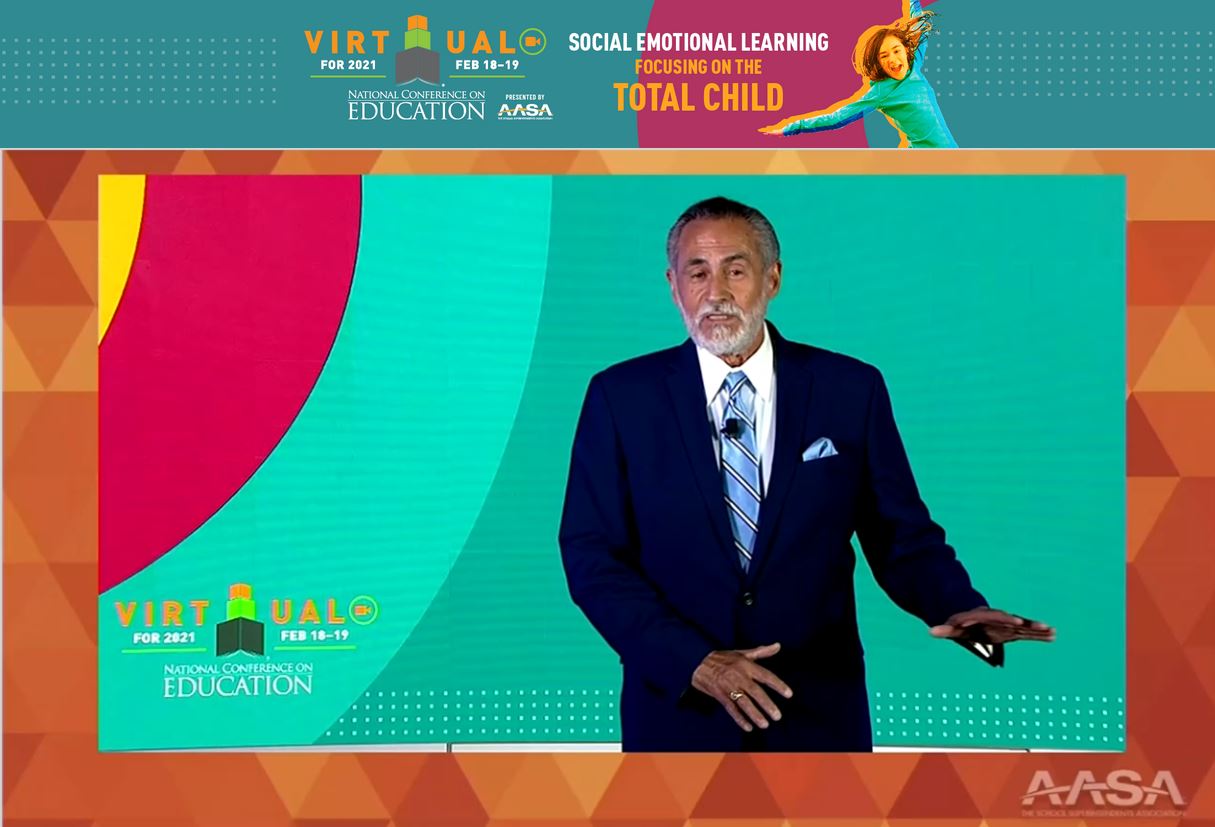By Jay P. Goldman
Since he presided over the final session of the AASA national conference in San Diego 12 months ago, Daniel Domenech has witnessed unimaginable developments in the education arena and well beyond. At the 1st General Session of the conference’s 2021 edition, he reflected on the stirring changes brought about by the COVID-19 pandemic and outlined a few ways that AASA has responded to the call.
 Domenech, AASA’s executive director, delivered his remarks virtually on Thursday morning, Feb. 18, to more than 900 school system leaders registered for this year’s AASA National Conference on Education.
Domenech, AASA’s executive director, delivered his remarks virtually on Thursday morning, Feb. 18, to more than 900 school system leaders registered for this year’s AASA National Conference on Education.
“A year ago, we came together in San Diego,” he opened. “Those of you that were there might recall the local news regarding a group of individuals that had come from China and were being quarantined due to a new disease known as COVID-19. We had a great conference last year and we all headed back home not at all alarmed by the recent development.”
It was only a month later that the fast-spreading virus forced superintendents to close down school buildings and begin the difficult, overnight transition to remote learning. “We all hoped that by September things would return to normal,” he said.
In many parts of the country, students continue to learn remotely, contributing to learning losses and threats to the social and emotional health.
Domenech recounted a few ways that the association has tried to support the work of struggling school systems during the past year. He noted convening last April the COVID-19 Recovery Task Force, which devised a set of guidelines for reopening schools and continues to monitor conditions and recommend appropriate actions.
The public advocacy team at AASA pushed early on for federal financial support, ensuring schools would be able to feed students even when not in school. “We brought to the attention of the nation that millions of your students did not have the technology nor the internet access in their homes to be educated remotely,” Domenech added.
AASA’s professional learning and networking programs pivoted to virtual status, staging hundreds of professional webinars. The association created an Equity Cohort and continued a mini-grant program to provide emergency relief to school districts for unmet needs of students.
Domenech said the association looked forward to working closely with the U.S. Department of Education and its incoming leadership, noting that both Education Secretary Miguel Cardona and Deputy Secretary Cindy Marten have worked in local school administration.
The most recent development he referenced was AASA’s creation of a national commission of superintendents and leaders in the private sector and not-for-profit world “to define and describe a new world for education — not one that brings us back to the way things were, but one that looks forward to a student-centered, equity focused education.”
While the year-long pandemic has thrown many challenges in the path of K-12 educators, Domenech said he believes the health crisis “can be a springboard to changes that should have been made long ago and innovations that need to become the new norm.”
(Jay Goldman is editor of Conference Daily Online and AASA’s School Administrator magazine.)

